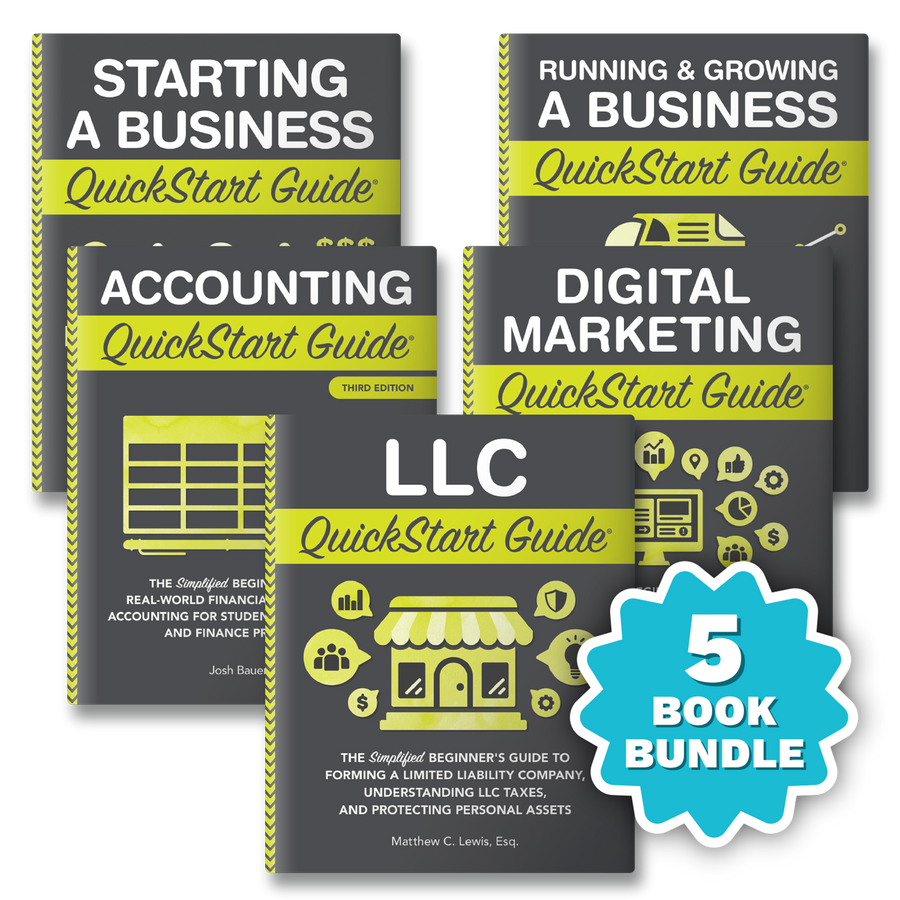Is a Career in Digital Marketing Right for You?
With the ever-growing popularity of digital media, it's no wonder that digital marketing is becoming an increasingly popular career choice.
But what does a career in digital marketing involve? And how do you get started?
What Does a Digital Marketing Career Involve?
A career in digital marketing can involve working with clients to create and execute marketing plans that drive results. You may also be responsible for managing digital marketing campaigns, measuring the success of those campaigns, and making adjustments as needed.
A career in digital marketing may also include developing and executing digital media strategies, creating content for online platforms, or managing social media accounts.
The above is by no means a comprehensive list; the scope of any individual digital marketer’s duties can vary wildly based on their area of specialization and whether they work for an agency, as a freelancer, or in-house for a brand.
As with many careers in new media, the only constant that digital marketers face is change—part of staying on the industry’s cutting edge means having a willingness to try new things, pay attention to emerging trends, and experiment with new tools and tech.
<h2>How Do I Get Started in a Digital Marketing Career?</h2>
If you're interested in a career in digital marketing, the first step is to explore your interests and skills. Once you know what areas of digital marketing interest you, start researching online resources and courses that can help you develop those skills, then look for opportunities to gain experience in the field.
For example, if you have a flair for writing, then writing ad copy, producing social media content, or writing content could be a great industry entry point for you.
Digital marketing—and the marketing industry broadly—will always have a place for creative people. If you’re good at writing, design, communication, or working in visual media, there will always be a role that you can easily grow into within the world of digital marketing.
If you have a more analytical or scientific mind, there is space for you as well. Digital marketers are always measuring their success against a wealth of data, benchmarks, and past performance. Understanding how to interpret this data and what actions to take based on what the data tells you is a fundamental skill for successful digital marketers.
<h2>Do I Need a Marketing Degree to Become a Digital Marketer?</h2>
There is no one-size-fits-all answer to whether or not a marketing degree is necessary to become a successful digital marketer.
The field is highly specialized but also has a low barrier to entry, which means that it isn’t uncommon for self-taught digital marketers to work side by side with colleagues who have collegiate accreditation.
Ultimately, a strong portfolio will get you very far. Marketing is a results-driven industry, and this is all the more true for marketing that takes place in digital spaces. Marketing agencies want experienced staff who bring results to the table from day one. If you want to get a job with an agency, chances are that, at a minimum, they will expect a degree and will certainly give preference to degree-holding applicants with experience.
Of course, if you’re going into business on your own as a consultant or freelancer, your level of experience, accreditation, or competence is entirely up to you. In this situation, a degree from an institution of higher education can only contribute positively to your sales pitch, but the results that you have achieved for other clients will go much farther here.
Some of the most respected thought leaders in the digital marketing world started their careers elsewhere and grew into their role by virtue of their experience and the novel ways in which they approached the problems faced by businesses.
In short, don’t let a lack of formal training hold you back from taking the first steps on your path to becoming a successful digital marketer!
<h2>Choosing an Area of Digital Marketing Expertise</h2>
While being a "general" digital marketer is an excellent way to break into the industry—and there are successful digital marketing generalists out there—you'll have a better chance of success if you narrow your focus and specialize in one area.
Additionally, digital marketing trends evolve quickly, and it is a tall order to keep up with trends in every little corner of the business.
<h3>HOW WILL I KNOW WHICH MARKETING NICHE I SHOULD SPECIALIZE IN</h3>
The answer to this question is very personal. Really, you’re the only one who can come up with a good answer.
Consider your strengths and interests, then map those attributes to different digital marketing roles. If you're not sure where to start, consider looking for digital marketing jobs that focus on specific areas of the industry that correspond to your experience (or the areas of the industry where you are looking for experience).
<h3>SOME IDEAS FOR AREAS OF CONCENTRATION AS A DIGITAL MARKETER</h3>
Content Marketing
Content marketing is creating and distributing valuable content to generate leads and build brand awareness. As a digital marketer, you would create or contribute blog posts, social media posts, e-books, or videos to help your company stand out from the competition.
Like writing? Like teaching? Like making connections and helping people? This is not only a great industry entry point, but content marketing has become a norm in the digital marketing world. For the foreseeable future and beyond, there will be no shortage of work for talented content marketers.
Digital Advertising
Advertisers use digital advertising—usually pay-per-click (PPC) or programmatic advertising—to reach potential customers on websites, apps, and social media sites. As a digital marketer, you might focus on developing ad campaigns, managing the tracking and reporting of ad performance, or creating unique online ads.
This is a specialization that really stands to benefit from a strong portfolio and a proven track record as an advertiser. A college degree certainly doesn’t hurt, but the name of the game is high profits and low ad costs. Digital advertising specialists who crack that code can command a large roster of high-paying clients or, if they go the agency route, a fast track toward management and a higher salary.
Digital Analytics
Digital analytics is the practice of tracking and measuring the performance of digital campaigns. As a digital marketer, you would use data collected from digital marketing activities to make informed decisions about future marketing strategies.
If you’re going it alone as a marketer or are an entrepreneur who has to do your own digital marketing, you will have to familiarize yourself with this aspect of the industry. It doesn’t matter where your specialties or interests lie—analytics are the lifeblood of successful digital marketing efforts.
Digital Marketing Strategy
A digital marketing strategy is a comprehensive plan that outlines how you will reach your marketing goals. As a digital marketer who specializes in strategy, you would develop and implement a digital marketing plan that focused on developing customer relationships, creating effective online advertising campaigns, or improving website traffic and conversion rates.
This isn’t usually a role that clients or agencies entrust to novice marketers, and with good reason. A savvy strategy maker takes a number of digital marketing elements into account when putting together an effective strategy. This can be a lucrative area of specialization for consultants, freelancers, or account managers who work in an agency setting, but mastering it certainly takes experience and familiarity with a high number of different marketing systems and tools.
Email Marketing
Email marketing is a popular way to promote products or services through email messages. Campaigns can be targeted to specific demographics, and they can be designed to convert visitors into customers.
Email marketing is often cited as one of the highest ROI (return on investment) activities that brands can engage in. Becoming an accomplished email marketer takes more than just writing compelling copy, however. Email marketers must take accessibility, deliverability, and other elements into consideration when honing their skills. These other aspects are the “make or break” factor distinguishing between good email marketers and the masters of their craft.
Lead Generation
Lead generation generates leads for a business or individual by contacting potential customers through email, phone calls, or social media posts and aims to convert these potential customers into paying customers. Lead generation can be done manually or through an automated system.
A specialization in lead generation blurs the line between sales and digital marketing. A good lead generation specialist knows not only how to use a variety of digital tools to connect with and convert potential leads but how to use various strategies to nurture those leads along the sales funnel.
Online Reputation Management
Managing the online reputation of a business or individual helps to protect the company or individual from negative comments and reviews online. This is an essential aspect of digital marketing because it can help attract new customers and keep old customers happy.
In the same way that lead generation specialists are part digital marketer and part salesperson, online reputation management specialists are part digital marketer and part public relations guru. Effective online reputation management combines SEO (search engine optimization) skills, communication skills, content marketing, and old-fashioned public relations expertise into a single, high-responsibility role. When they do it well, online reputation management consultants can command high rates and enjoy a high level of demand. The stakes are high, though. The price of failure can be the premature death of an otherwise long-lived brand.
SEM (Search Engine Marketing)
Search engine marketing (SEM) is the practice of using search engine optimization (SEO) and paid search advertising to tap into the endless stream of daily internet searches through engines like Google and Bing. SEM can be used to attract and maintain web traffic, convert leads into customers, and develop brand awareness.
Due to the mind-bogglingly large volume of search traffic that passes through search engines on a daily basis, effective search engine marketers are in high demand. Similar to the ubiquity of content marketing, search engine marketing is a standard component of nearly all contemporary digital marketing strategies. Good SEM specialists can make a real difference in the bottom line of their clients, and thus are in high demand. For this specialization, an ironclad history of providing results for your clients will likely carry more weight than a digital marketing degree. So make the results you can deliver a central part of your pitch, if this is the path you wish to take.
Social Media Marketing
Social media marketing uses online platforms such as Facebook, Twitter, and LinkedIn to build relationships with potential and current customers. It helps businesses target their audience and use relevant content that friends and families share on social media as a way to solidify their customer base and increase market share. Social media marketing also includes promoting products or services through social media posts and managing social advertising campaigns.
Social media marketing is a field that has a very low barrier to entry and as a result is saturated with freelancers and agencies alike. Nevertheless, social marketers who can dial in their mastery of the medium can demonstrate a huge advantage over their competitors. Truly mastering the social medium means keeping tabs on current and emerging social media—something cheap imitators struggle to deliver. Success here means not only demonstrating that you are familiar with the nitty-gritty details about each and every social media platform du jour, but also tying that familiarity to revenue or business objectives.
Website Design and Development
Website design and development is an ever-growing field that requires people with a great deal of knowledge and experience. Those who want to enter this field must have a strong background in web design, programming, and marketing. To create a successful website, the designer must understand the client's goals and objectives as well as the target market. Additionally, they need to be familiar with search engine optimization techniques to ensure that potential customers are able to find the website. Finally, good website developers need strong communication skills to regularly work with clients.
The rise of CMSs (content management systems) has been a huge thorn in the side of talented web designers. While it is true that the world of web design has taken a hit in the form of services like WordPress and Shopify, no matter the number of no-code solutions available, people and businesses will always need web designers and developers to tailor their exact needs to the restricted offerings provided by content management systems. Today’s best designers and developers have a strong handle on digital marketing best practices, so they are that much better prepared to deliver solutions tailored to the needs of their clients.



